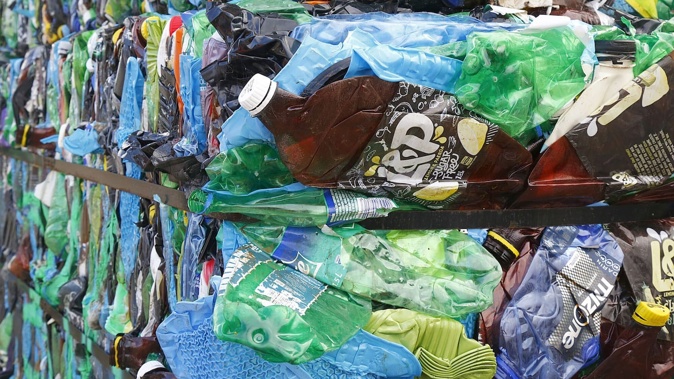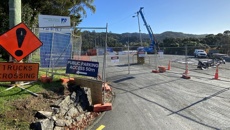
A year’s worth of plastic waste, once collected for recycling, may now end up in the landfill.
Far North District Council (FNDC) ran out of space for the 190-tonne stockpile, which grew after markets for type 1 (PET) plastic started to fade around three years ago and has not recovered.
The council stockpiled the plastics in the hope that the markets would recover.
In a recent meeting, FNDC moved to approve the landfilling of the stockpile, at an estimated cost of $45,000 and approved the suspension of accepting coloured type 1 (PET) plastic at council facilities as recyclable items from next month (June).
The suspension will continue until sustainable options for the type 1 (PET) plastics develop.
“After China closed its recycling markets to the rest of the world, the market for coloured 1 (PET) plastics began to fade, and it is now uneconomic for the Far North to recycle these,” FNDC said.
The council has continued to accept this grade of plastics in the hope markets would recover. However, the stockpile of coloured 1 (PET) plastic has now reached 190 tonnes and has deteriorated to the point it cannot now be recycled.
“After June 16, the council will offer a one-month grace period where coloured 1 (PET) plastics will be accepted for landfill at no charge. From mid-July, disposing of coloured 1 (PET) plastics will attract the same charge as other household waste going to landfill.”
Zero Waste spokeswoman Sue Couts said the decision reinforced the need to move away from recycling and invest in reusable packaging instead.
 Zero Waste spokeswoman Sue Coutts said the decision highlighted the need to shift focus from recycling to reusable packaging solutions.
Zero Waste spokeswoman Sue Coutts said the decision highlighted the need to shift focus from recycling to reusable packaging solutions.
She said the aim should be there to be a shift away from recycling and more focus on reducing and reusing.
“It’s definitely good to shift to reuse and avoid buying single-use containers in the first place if you can.”
“We should be investing as a country in systems for reuse and putting in place product stewardship schemes that require producers, wholesalers and retailers to change their products, packaging and business models.”
She said retailers and businesses should cover the real cost of putting packaging out into the market.
“That is the full cost to collect, sort, transport and recycle their packaging. At the moment councils and ratepayers often have to pick up the tab.”
She said there aren’t many options for non-recyclable plastics.
“The best thing to do is to stop collecting them so time and money are not wasted on collection, sorting, baling storage etc. And being clear and transparent about what is and is not recyclable with the public is a very important part of all kerbside and commercial collections.”
Government standardised the materials collected through kerbside to 1, 2 and 5 plastics so that councils did not get pressured into accepting other plastics with low volumes and poor markets, she added.
Take your Radio, Podcasts and Music with you









